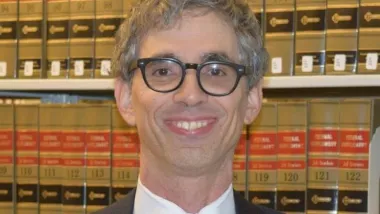Is government too efficient to protect us from epidemics?

In ordinary times, public services should be run as efficiently as possible. So if it is easy to find a seat on a subway, perhaps a city should run subway trains less often, or at least redistribute trains to routes that are packed with people. Similarly, if crime goes down, it makes sense to close jails and prisons, because a lightly-used jail is a waste of public money. Right? Maybe not.
In early March, New Yorkers responded to the coronavirus epidemic by avoiding the subways and working from home. Quite understandably, New York's transit agency has responded to a decline in ridership by cutting service. This saves the transit agency money, but makes trains more crowded. Unfortunately, conventional medical wisdom is that people should be standing at least six feet apart to minimize their risk of coronavirus infection. But if trains are packed, obviously this is impossible. So from a health standpoint, the answer is redundancy—to run more trains than the city really needs, so that people can stand a few feet apart from each other.
Similarly, in recent years New York governments have been closing down jails and prisons—partially in response to declining crime, partially in response to progressive concerns about alleged overuse of incarceration. The state has closed down 17 prisons since 2010; this no doubt saves the taxpayers money, but also means that prisons stay crowded, again increasing the risk of coronavirus infection. Defense attorneys are now starting to use this risk as an argument for allowing even alleged murderers to avoid pretrial detention, and for releasing people who are already in prison. (This may turn out to be counterproductive if the persons released either are already infected or if they become homeless, which might make them more likely to be infected.)
It thus appears that there is something of a trade-off between efficient government and controlling the coronavirus epidemic. If our first priority is to control the epidemic or to plan for future epidemics, we need to spend money on redundant facilities: extra subways and jails to prevent overcrowding. But this may not be easy: if social distancing creates a significant economic downturn, states may not have the money to maintain even the overcrowded facilities that currently exist, let alone new ones to reduce overcrowding.* I do not have any short-run answers to these tradeoffs, but in the long run, the surviving government officials might need to think about the facilities we will need more of in the next epidemic, and to buy more of them than we need in the short run.
*For that matter, they may not be able to pay for the medical equipment they need to cure the diseased—but that is a discussion unrelated to land use or transportation.

Planetizen Federal Action Tracker
A weekly monitor of how Trump’s orders and actions are impacting planners and planning in America.

Chicago’s Ghost Rails
Just beneath the surface of the modern city lie the remnants of its expansive early 20th-century streetcar system.

Amtrak Cutting Jobs, Funding to High-Speed Rail
The agency plans to cut 10 percent of its workforce and has confirmed it will not fund new high-speed rail projects.

Ohio Forces Data Centers to Prepay for Power
Utilities are calling on states to hold data center operators responsible for new energy demands to prevent leaving consumers on the hook for their bills.

MARTA CEO Steps Down Amid Citizenship Concerns
MARTA’s board announced Thursday that its chief, who is from Canada, is resigning due to questions about his immigration status.

Silicon Valley ‘Bike Superhighway’ Awarded $14M State Grant
A Caltrans grant brings the 10-mile Central Bikeway project connecting Santa Clara and East San Jose closer to fruition.
Urban Design for Planners 1: Software Tools
This six-course series explores essential urban design concepts using open source software and equips planners with the tools they need to participate fully in the urban design process.
Planning for Universal Design
Learn the tools for implementing Universal Design in planning regulations.
Caltrans
City of Fort Worth
Mpact (founded as Rail~Volution)
City of Camden Redevelopment Agency
City of Astoria
City of Portland
City of Laramie






























